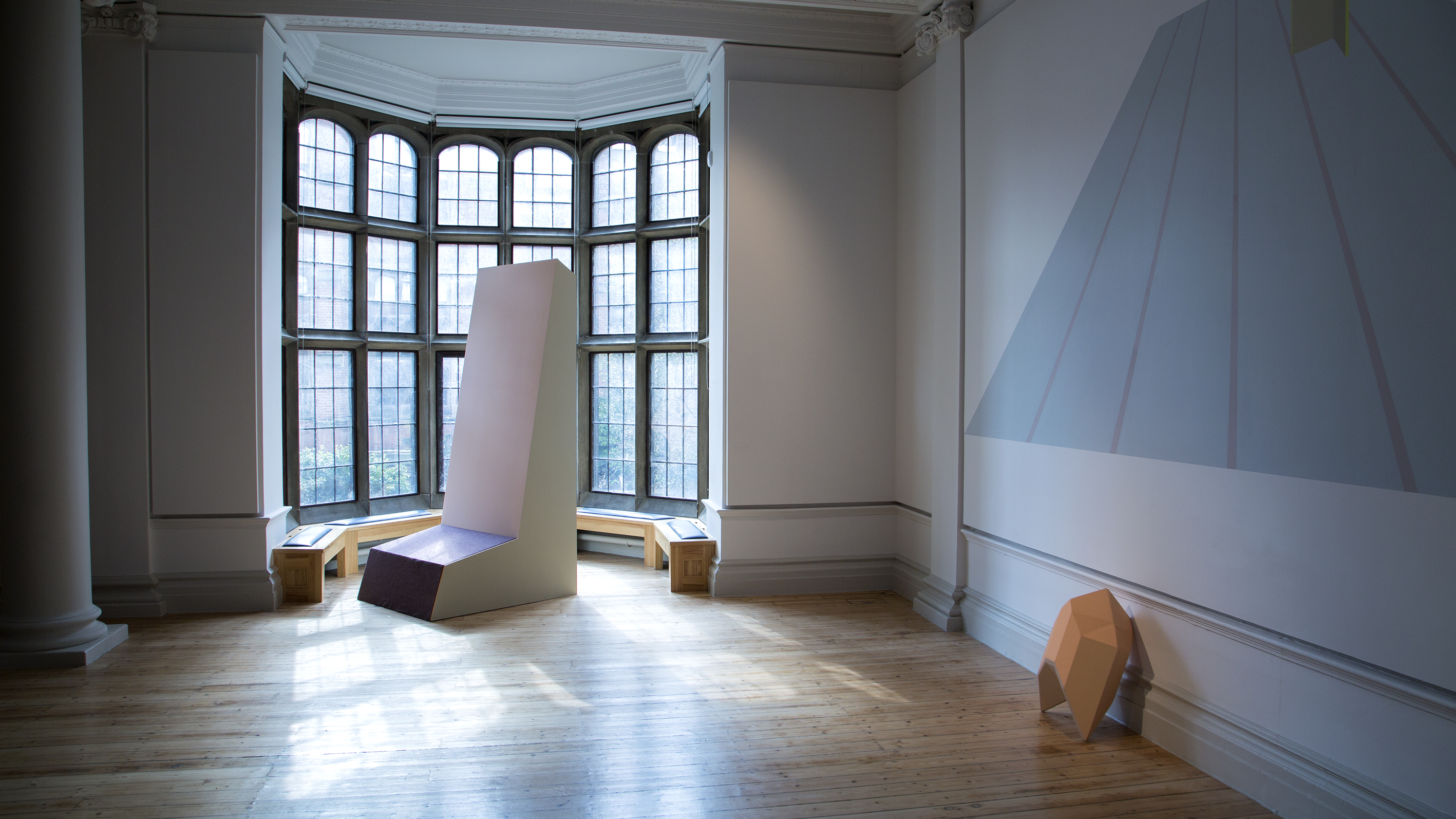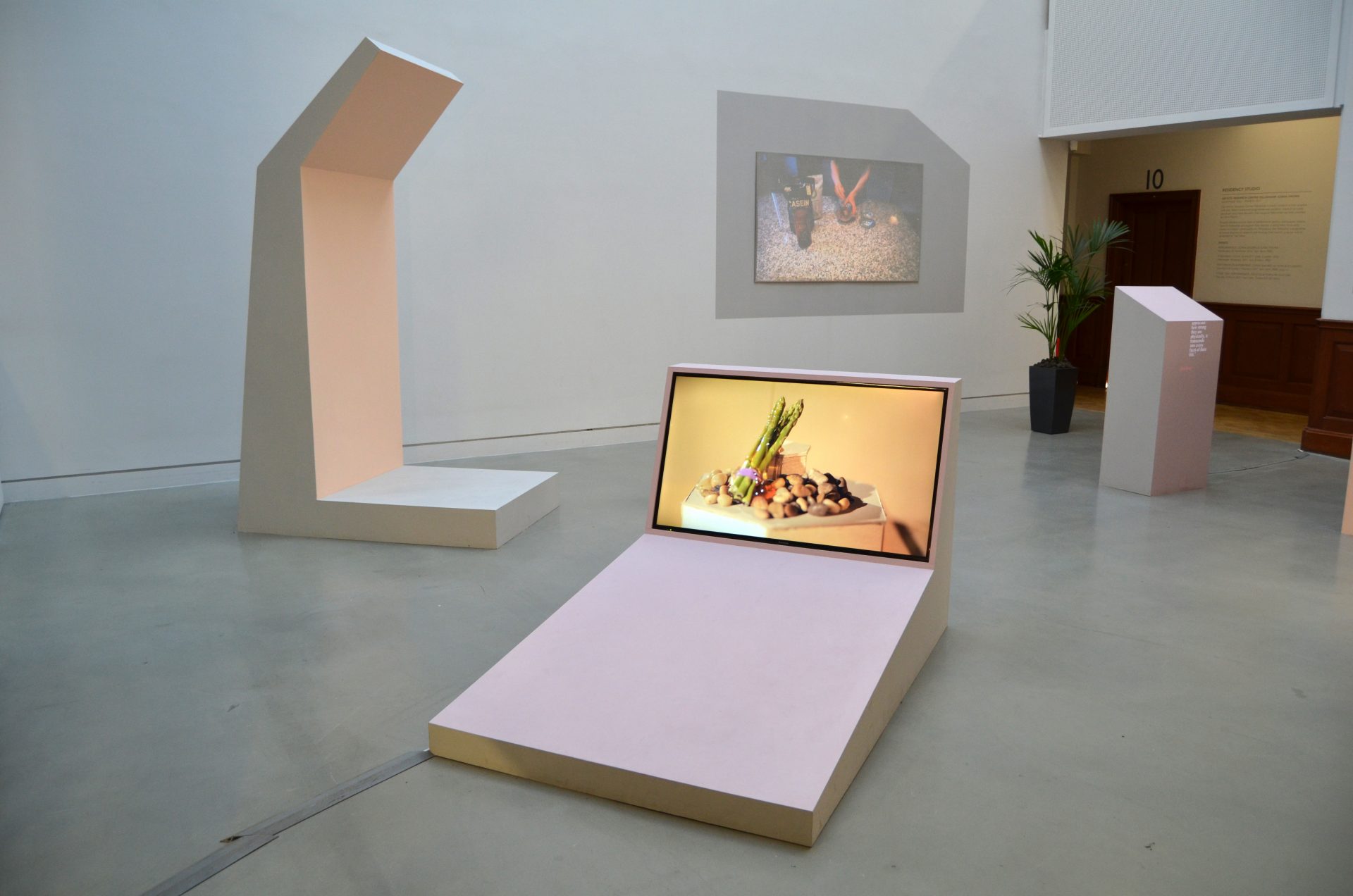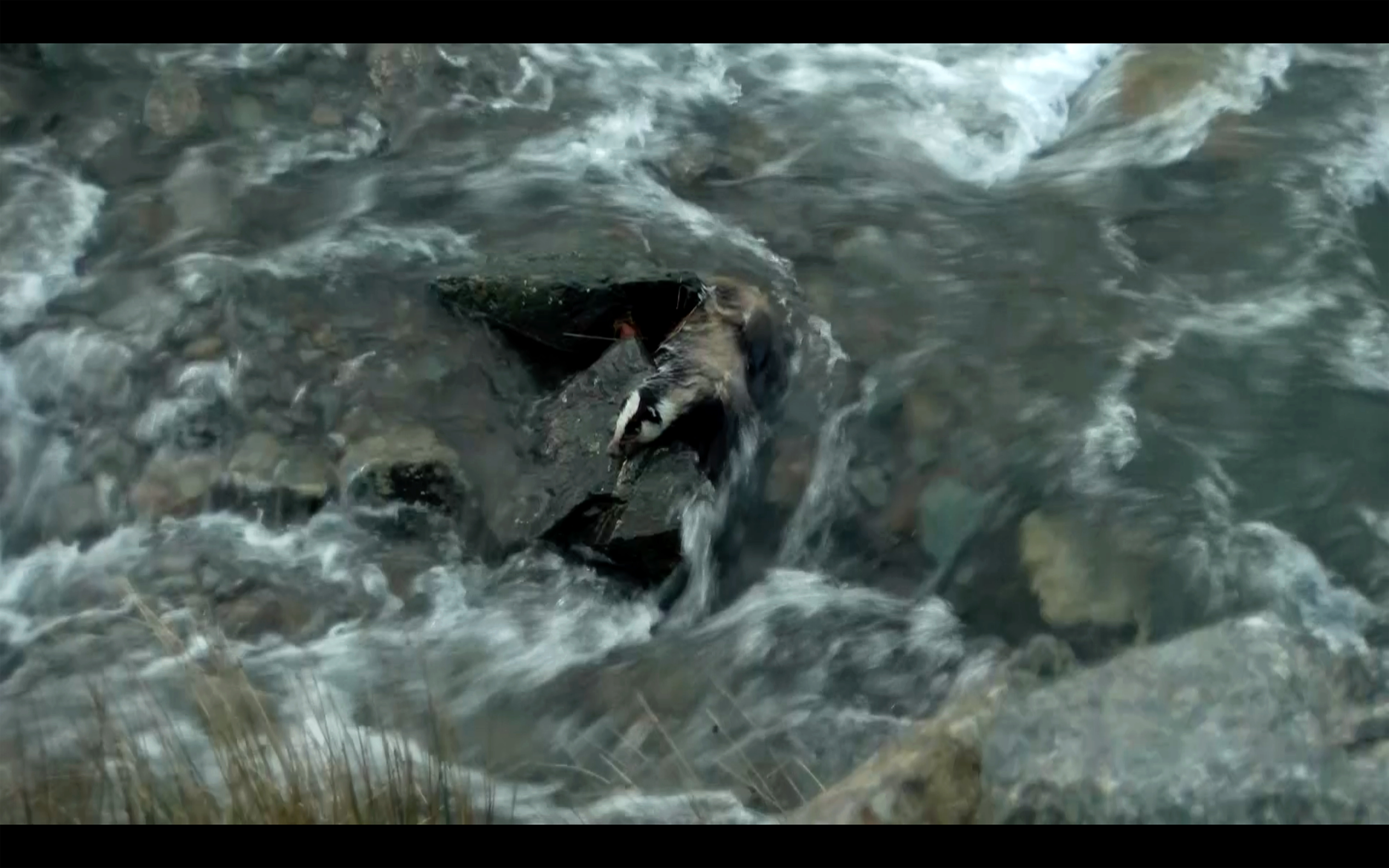Dr. Kate Liston
Kate Liston works in response to existing sites and situations, using the limitations of these locations and contexts to explore forms of world-making. She employs echo and repetition in writing and moving-image to reveal how materials are handled and meanings processed. Her sculptures use a schematic visual language and spatial illusion to present as speculative forms. Projects often encompass sculpture, moving image, sound and writing into installations that act as hosting spaces for audiences to dwell in, which are sometimes activated by live events.
Thesis Title: Link Zone: an exploration of the sensation of knowledge through a practice of art and writing
This thesis explores the scope artists’ writing has to perform the ‘sensation of knowledge’ – a term I am using to indicate my central proposition that knowledge can be felt. Through descriptions of place, the use of allusion and first person narration the thesis paves the way for a series of encounters between the reader and the matter, content and commonplace bodily processes of contemporary lived experience. By being grounded in this way, the ‘sensation of knowledge’ challenges presuppositions about the immateriality of knowledge; it makes readers alert to their own idiosyncratic perceptions of its meanings. Further, the thesis asks them to consider how such experience gains the authority and status of knowledge when the significance is felt rather than comprehended. The writing has come out of research into meaning-making that is located in the experience of specific sites and situations and has taken place across moving image, installation, writing and performance.
The thesis is presented as a self-contained art object with the writing that comprises it performing its argument through its form and methods rather than by explaining, cataloguing or defining it.. The writing as art practice contributes to a broad art discourse but also, critically, to academia. It specifically makes its proposition within, and in response to the current culture and format of knowledge production within the academy. It meets the defining expectation of a PhD to produce new knowledge and provides the means for this knowledge to be accessible through existing academic and institutional conventions. Its knowledge is contingent on the sensation of its encounter, an approach that is counter to that which the academy expects. With these propositions in mind, the writing produced for this thesis situates ideas and language alongside descriptions of physical substances. It questions assumptions about the default function of language to expedite the delivery of information, by slowing down the feelings experienced. The material and abstract references accumulate to reveal the sense of weight that occurs in response to the act of reading. Formal conventions of academic writing and reading, such as footnotes, are used as meta-critical devices that illuminate the apparatus of institutionalised knowledge production. The thesis places such devices alongside forms of storytelling including historiographic fiction and autobiographical narratives to reveals the multiplicity of modes through which knowledge can be produced and absorbed. This multiplicity is a critical device that challenges institutionalized conventions through which knowledge is legitimized. Through these methods the thesis locates the production of knowledge between the body, ideas and the lived world and, as such, challenges the superiority of one form over another.
Awarded Date: 01/03/2017
Principal Supervisor: Dr Joanne Tatham
Second Supervisor: Professor Chris Dorsett
Thesis open access link (NRL or EThOS)
Website


